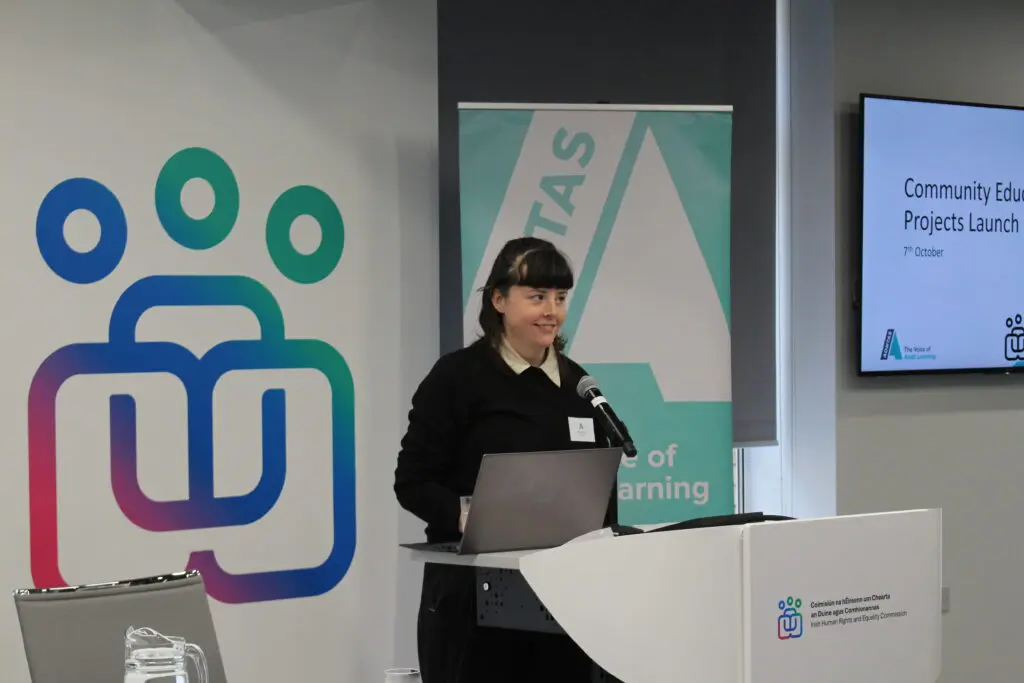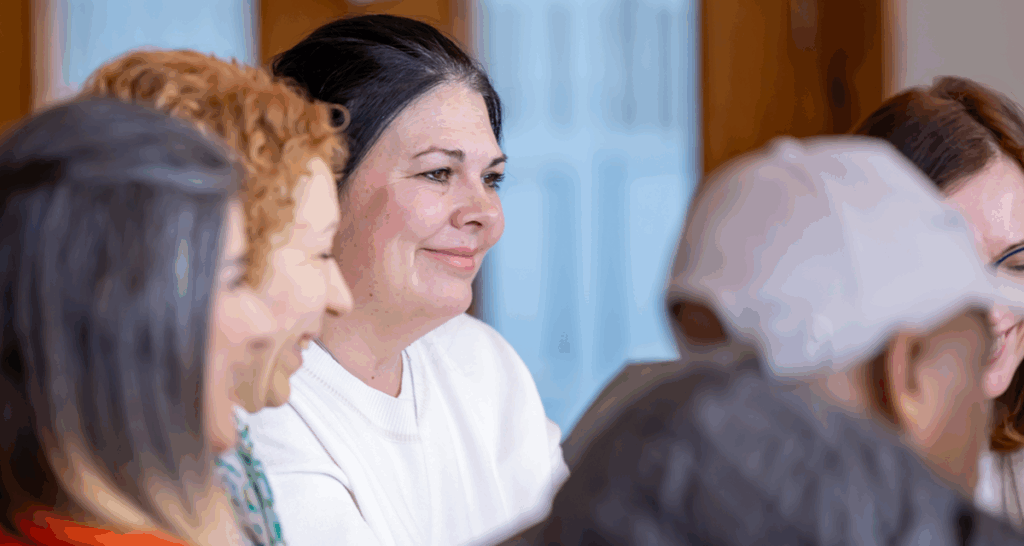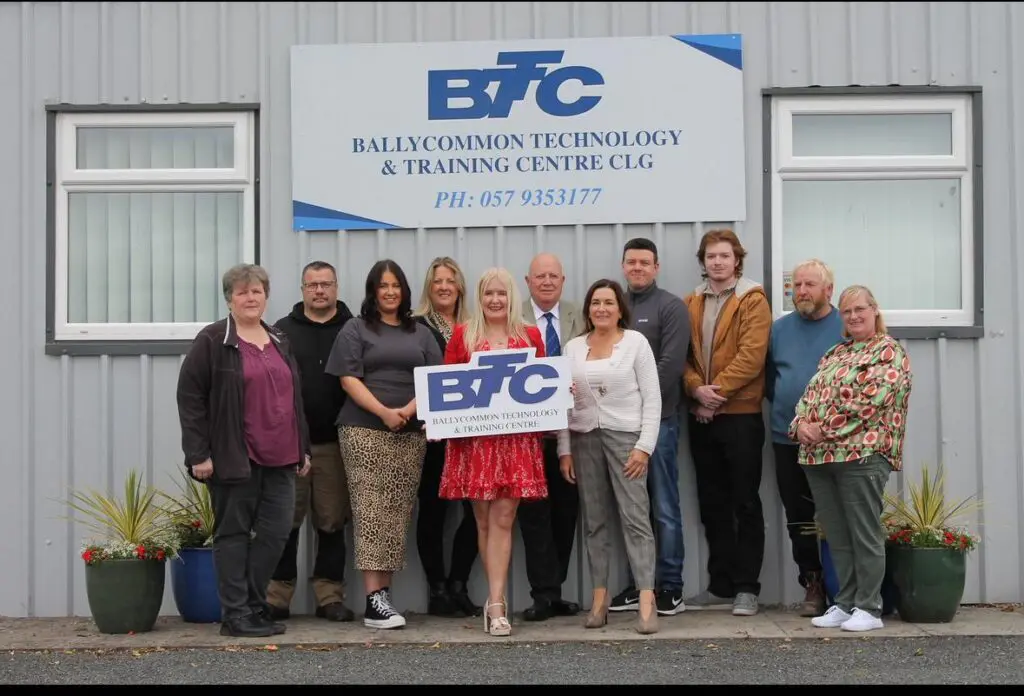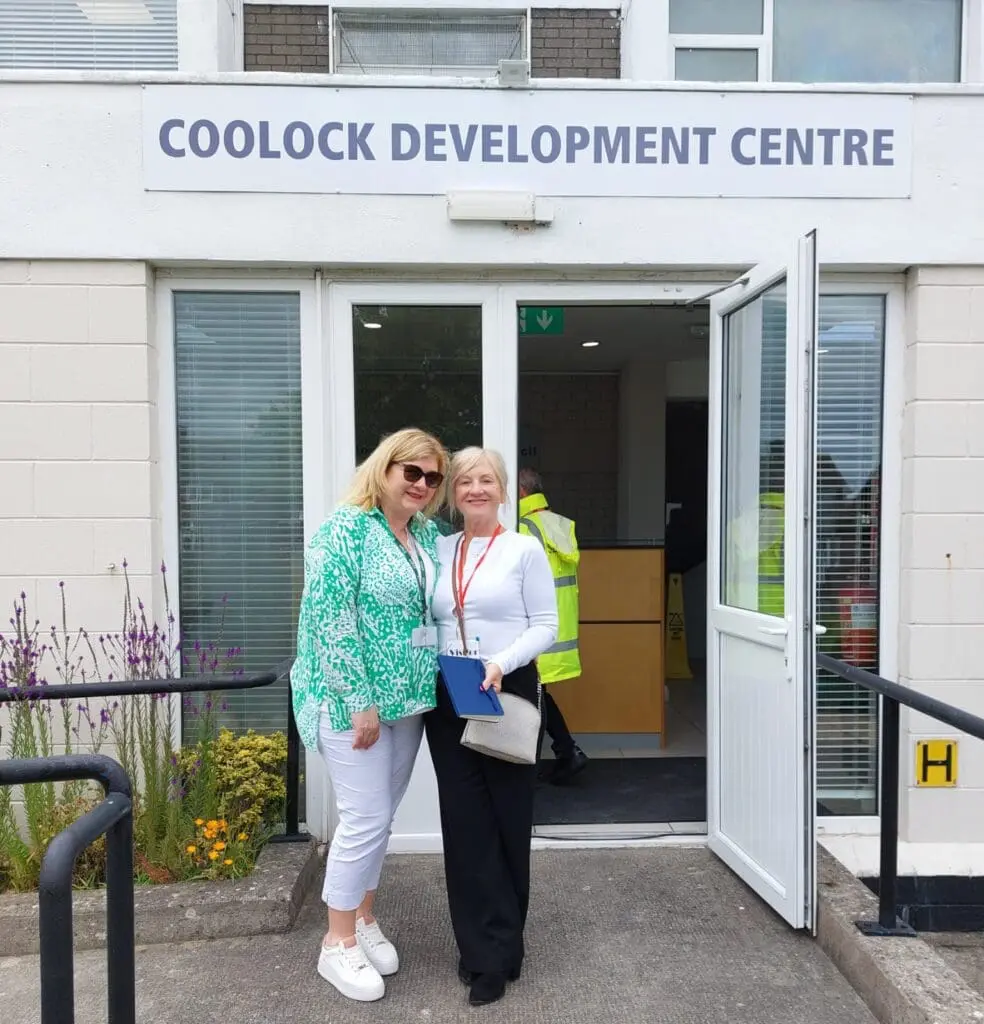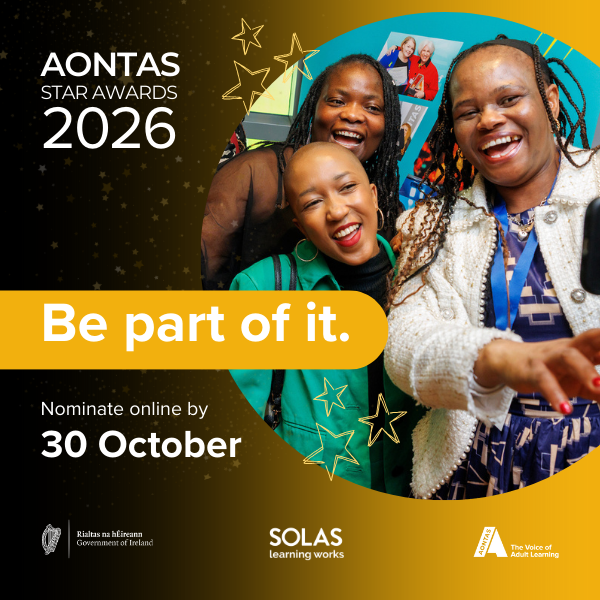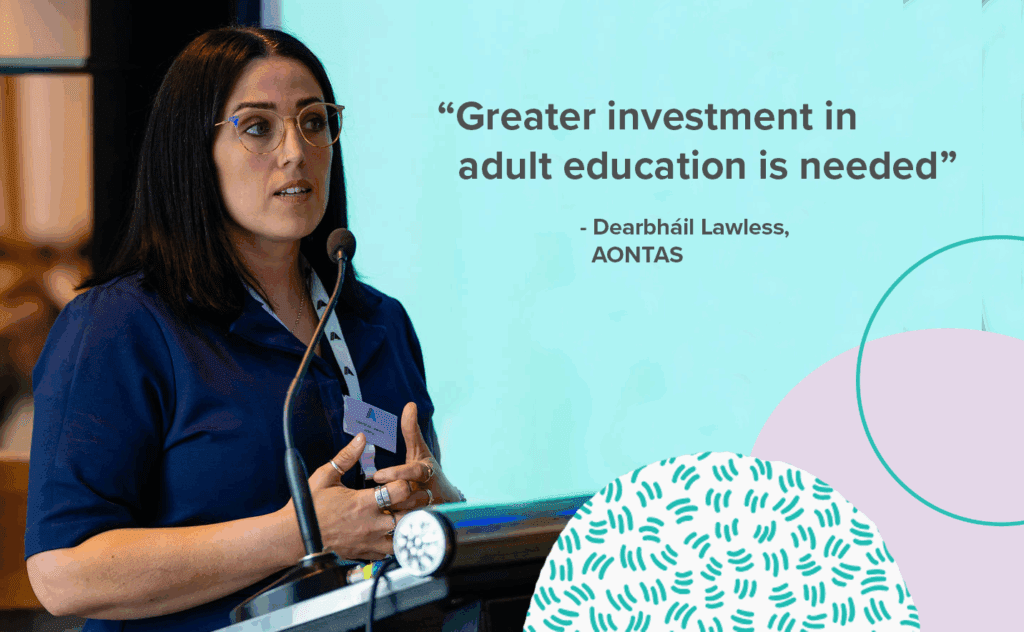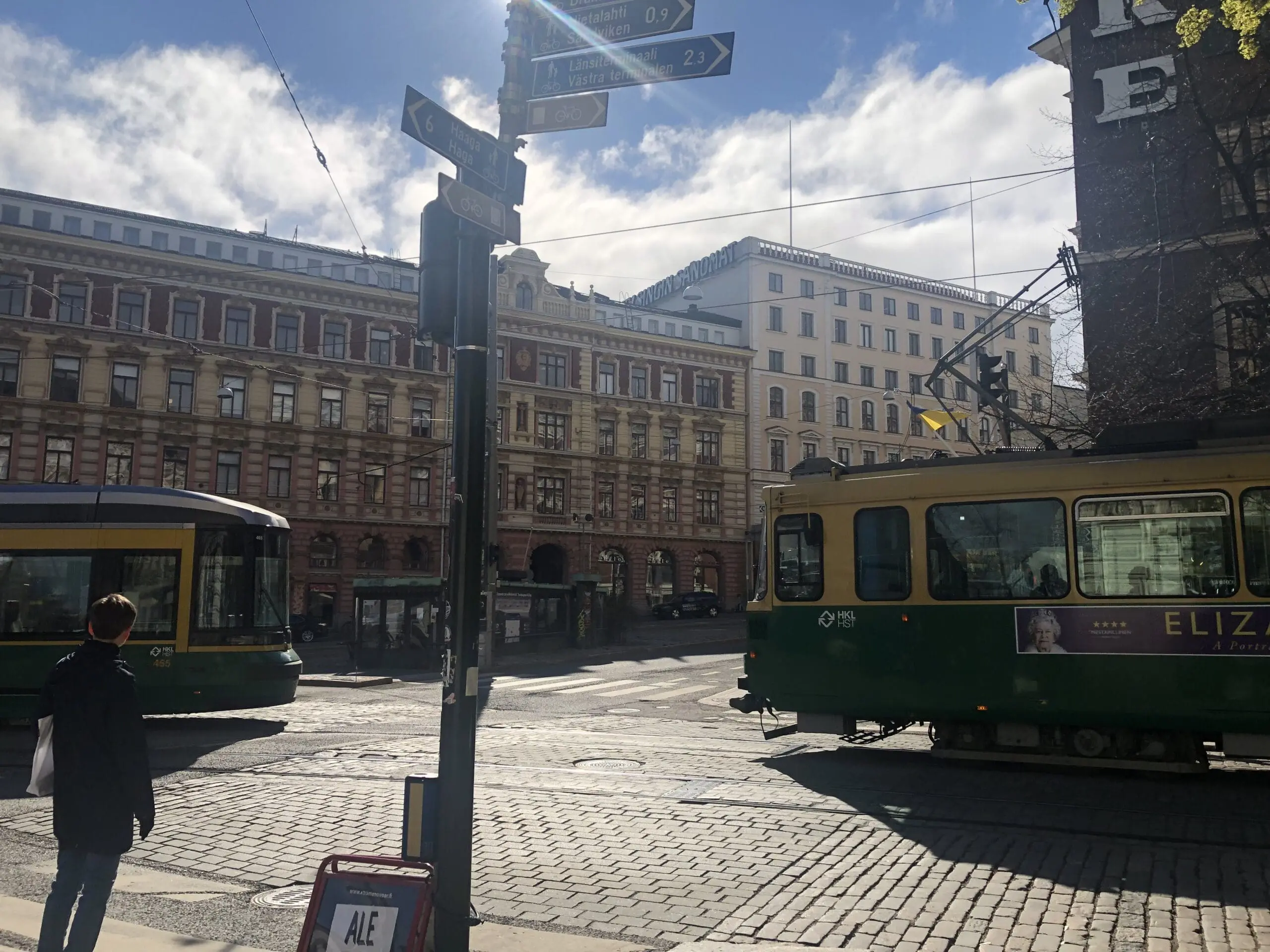 This sense of community and shared values relates to the concept of bildung, or sivistys in Finnish, which is a “combination of the education and knowledge necessary to thrive in your society, and the moral and emotional maturity to both be a team player and have personal autonomy,” according to Lene Rachel Anderson, an expert in the field. We could benefit from having more of this in Ireland! The idea behind bildung in adult learning is to move towards a more holistic model of education, which takes into account critical thinking, emotional intelligence, culture, life experiences, community, and a person’s obligation to share responsibility for their society.
This sense of community and shared values relates to the concept of bildung, or sivistys in Finnish, which is a “combination of the education and knowledge necessary to thrive in your society, and the moral and emotional maturity to both be a team player and have personal autonomy,” according to Lene Rachel Anderson, an expert in the field. We could benefit from having more of this in Ireland! The idea behind bildung in adult learning is to move towards a more holistic model of education, which takes into account critical thinking, emotional intelligence, culture, life experiences, community, and a person’s obligation to share responsibility for their society.
My host for the trip is Sari Pohjola, Communications Designer and Officer at KVS Finland (an organisation similar to AONTAS) and the European Association for the Education of Adults (EAEA).
Sari and I do similar work – including social media content and campaigns, written pieces explaining different ideas in adult learning, and creating engaging images that bring the work to life – but she also works on this concept of bildung.
According to the Bildung+ Project, which is ongoing through Sitra, the Finnish Innovation Fund, “Finnish Bildung has traditionally been strong. We have basic education that has been ranked as the best in the world, free higher education, an extensive network of liberal adult education providers that spans the entire country and strong cultural institutions.”
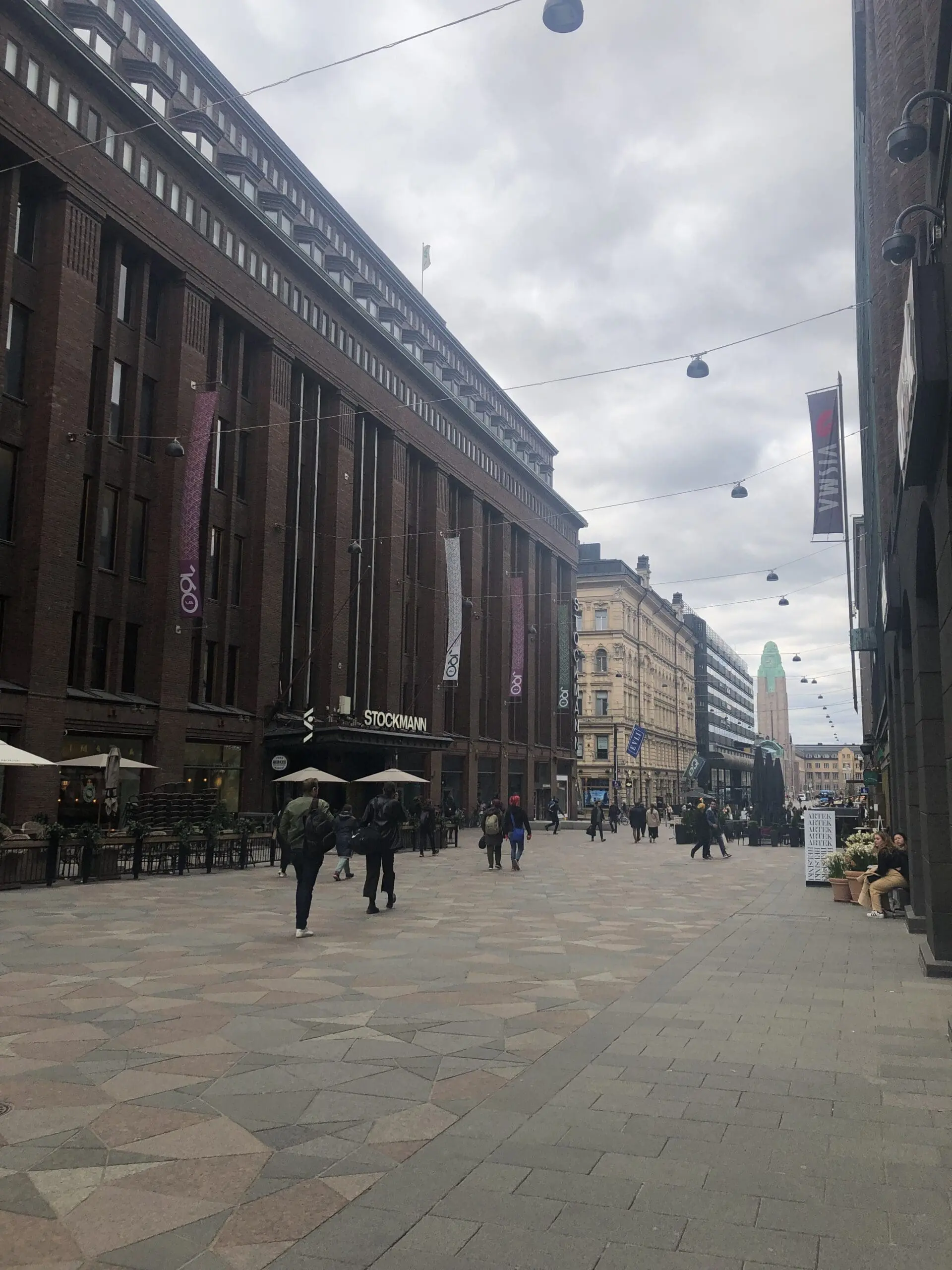 What the Finnish call “liberal adult education” is what we in Ireland call Community Education or non-formal education. This is a core part of lifelong learning in Finland. During my visit to the KVS office in Helsinki, I had the opportunity to meet with CEO Dr Lauri Tuomi, who shared with me the history and significance of non-formal learning in Finland, and how it is a funding priority for the Finnish Government.
What the Finnish call “liberal adult education” is what we in Ireland call Community Education or non-formal education. This is a core part of lifelong learning in Finland. During my visit to the KVS office in Helsinki, I had the opportunity to meet with CEO Dr Lauri Tuomi, who shared with me the history and significance of non-formal learning in Finland, and how it is a funding priority for the Finnish Government.
According to the Finnish Ministry of Education and Culture itself, the purpose of is non-formal learning is “to promote people’s versatile development and provide education and training that supports the cohesion of society, equality and active citizenship based on the principle of lifelong learning.” Such qualities are especially essential in the times we are living in, with major global challenges such as climate change, threats to democracy, and war as part of our collective realities. This is a big part of the bildung work.
I also meet with Nina Hjelt, a specialist in lifelong learning; with Marja Juhola, a Planning Officer at Southern Helsinki Adult Education College; and with Esko Clarke-Sario, a consultant in Digitalization. Our discussions focus on our different experiences in the adult learning sector in both Ireland and Finland. We talk about this concept of “liberal adult education” which offers, among other things, studies based on a person’s hobbies or interests. Its goal, according to the Government website, is to promote “people’s versatile development and wellbeing as well as the realisation of democracy, pluralism, sustainable development, multiculturalism and internationalism. Adult education emphasises self-motivated learning, a sense of community, and inclusion.”
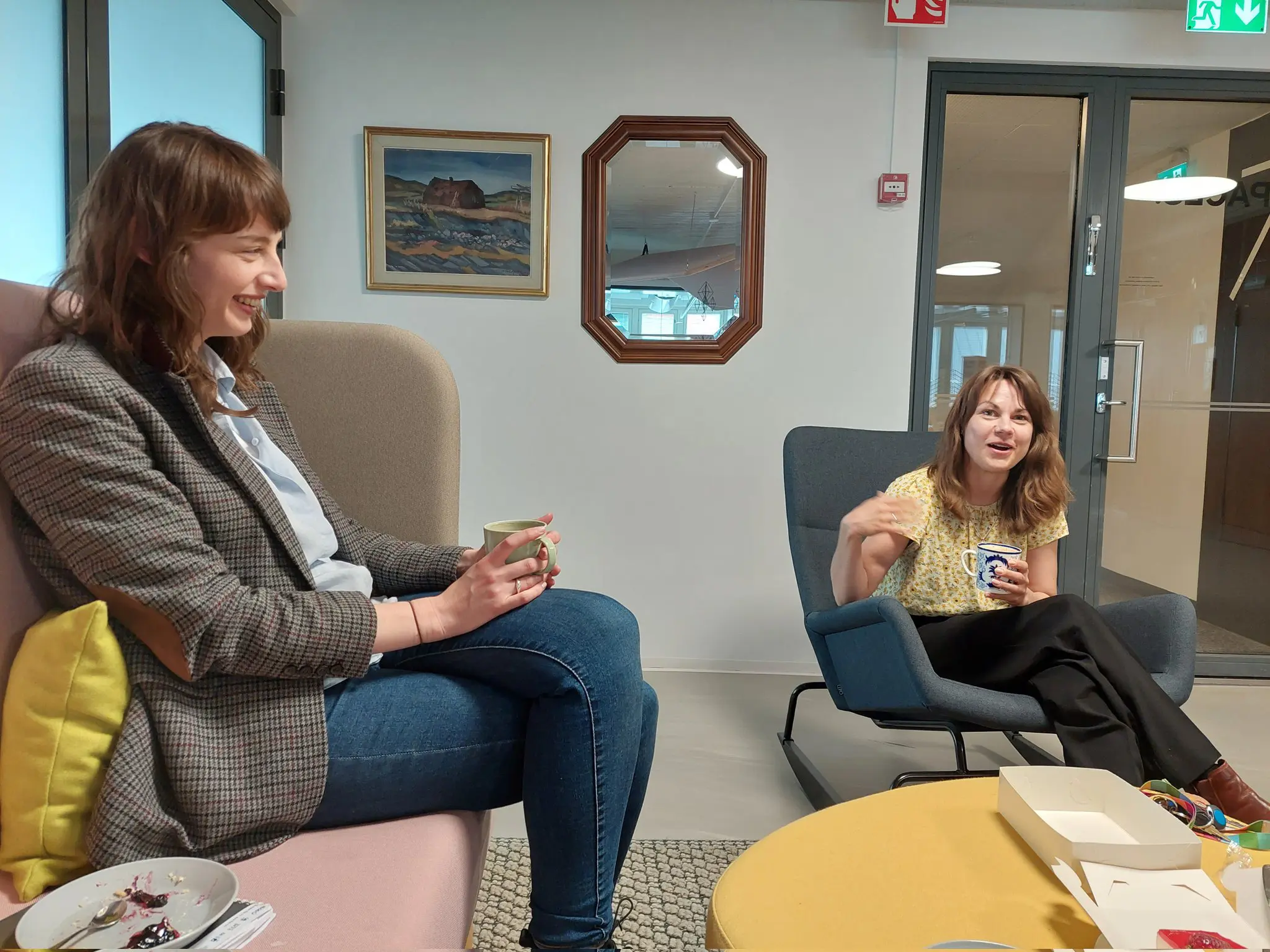 In Ireland, Community Education seeks to do something similar, though it is not so sustainably funded. The AONTAS Community Education Network offers a space of collective belonging and support for those providing this kind of education, and AONTAS continually advocates for more funding and resources for this particular side of the adult learning sector.
In Ireland, Community Education seeks to do something similar, though it is not so sustainably funded. The AONTAS Community Education Network offers a space of collective belonging and support for those providing this kind of education, and AONTAS continually advocates for more funding and resources for this particular side of the adult learning sector.
On my last morning in Helsinki, a sunny, cool morning, Sari and I walk to the nearby Finnish Adult Education Association (FAEA), whose offices are in a beautiful ornate old building with marble stairs, high ceilings, and white walls and wood everywhere.
We meet with Satu Heimo, Coordinator of SVV – Freedom and Responsibility of Liberal Adult Education, a Finnish joint research programme. This programme “aims to strengthen the research on liberal adult education” with researchers from various universities invited to join in, as well as teachers and administrative people working in educational institutes and associations and people working with the issues of liberal/popular adult education in regional and national government.”
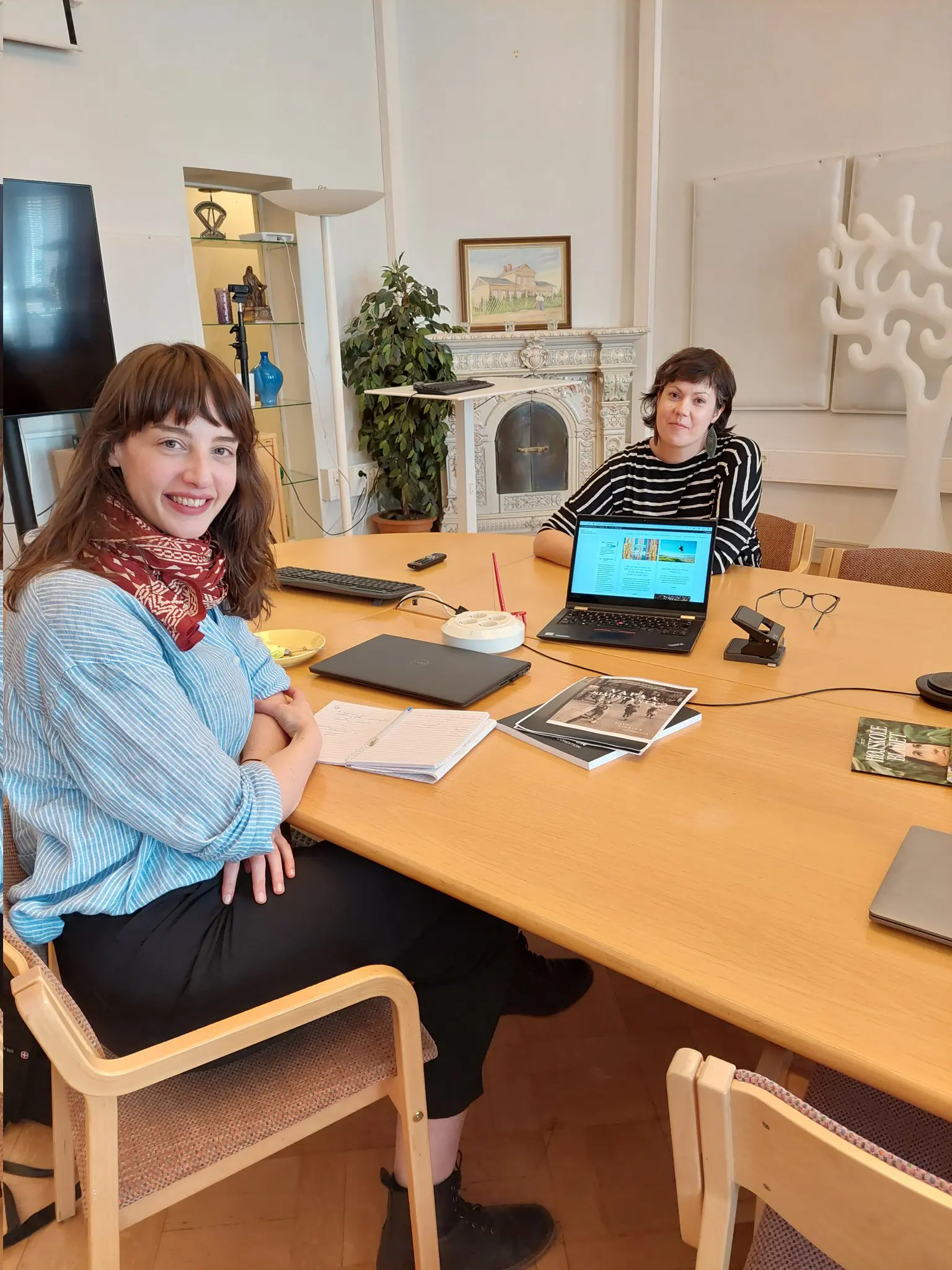
This reminds me of the CEPRAH project, conducted jointly by AONTAS and the Trinity Long Room Hub at Trinity College Dublin. That project looks at how researchers from the Arts and Humanities – from philosophy to history to English literature – can work with civil society organisations and Government departments to collaborate and improve policies and services for anyone in lifelong learning.
My role at AONTAS is Communications Officer, so I was particularly happy to spend time with Heini Huhtinen, Communications and Marketing Manager at KVS and editor-in-chief of Elm Magazine, Europe’s leading online magazine in lifelong learning and adult education.
As well as taking me for a coffee near the beautiful waterfront – as a big coffee drinker, I am spoiled for choice of fantastic coffee in Helsinki – Heini tells me about their approach to sharing and communicating all this fantastic work.
Our job, she shares, is to show people why they should care about these issues, to encourage constructive dialogue, and to demonstrate how lifelong learning connects with everything in our society – from mental and physical health, to economic equality, to art and music. Our Finnish colleagues were interested in how we in Ireland elevate the voices and experiences of learners. They wanted to hear more about our National Further Education and Training Learner Forum, and the concept of “Learner Voice”, which is at the core of AONTAS’s work.
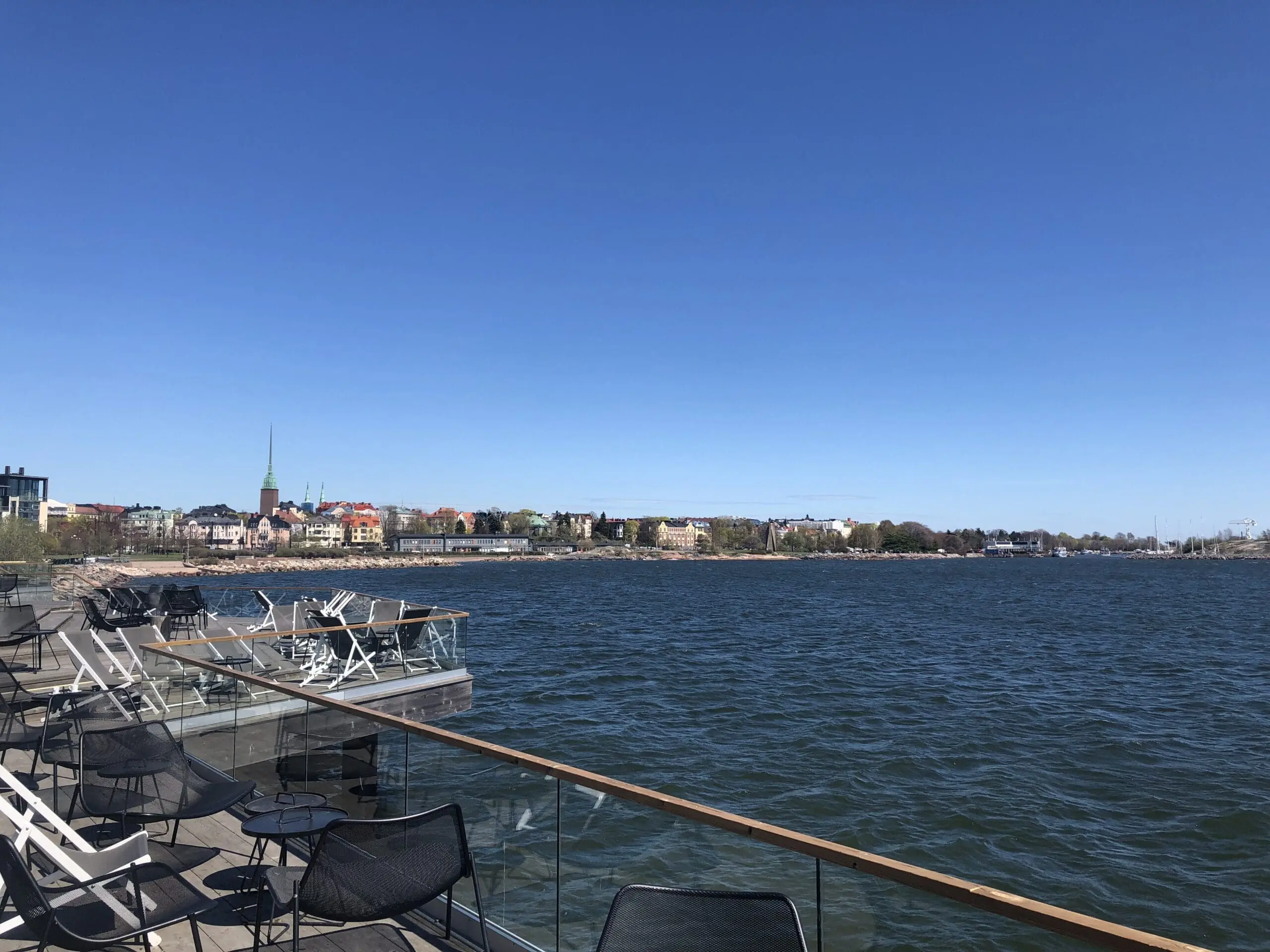 These discussions shed light not just on the work ongoing in bildung and adult learning, they also highlight how people working in adult learning across Europe have such connections and similarities. We have similar ideas about what is right, about the kind of education people should have access to, regardless of their circumstances, and that there should be equal opportunities for everyone.
These discussions shed light not just on the work ongoing in bildung and adult learning, they also highlight how people working in adult learning across Europe have such connections and similarities. We have similar ideas about what is right, about the kind of education people should have access to, regardless of their circumstances, and that there should be equal opportunities for everyone.
In thinking about this wide range of people, working towards similar goals all across Europe, I feel a collective sense of strength and hope.
I also look at how educational supports and structures – particularly for those most in need – are so accessible, supported and funded in a country like Finland, and how much we can improve here at home.
Click here for more information on the “bildung” Erasmus+ project.
Click here for more on the Finnish Education System.
This study visit took place as part of an Erasmus+ KA1 Mobility project called Build Action Mobilise (BAM). For more on AONTAS’s EU Projects, click here.
For more information, contact our Ecem Akarca, AONTAS EU Projects Officer, at: eakarca@aontas.com
To apply for Erasmus+ Adult Education funding in Ireland, contact Léargas

